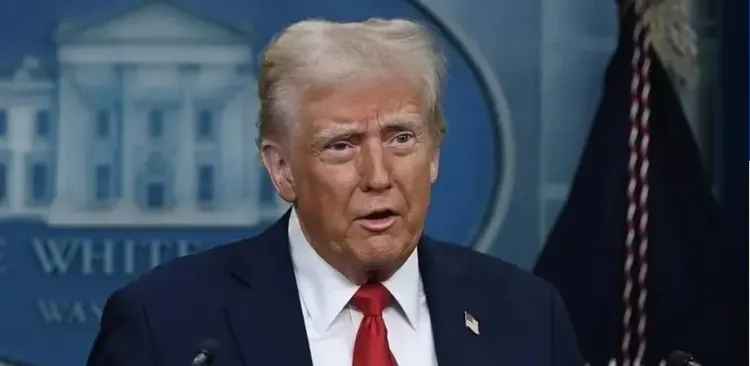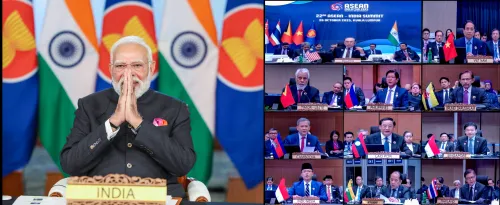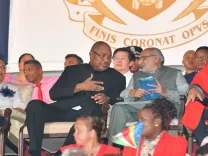Trump Questions $21 Million Funding to Wealthy India Amid Voter Turnout Debate

Synopsis
Key Takeaways
- Trump questions $21 million funding for India
- Elon Musk's DOGE cancels foreign assistance grants
- BJP criticizes funding cancellation as external interference
- Malviya links funding to foreign influence in India
- Soros accused of manipulating Indian electoral processes
Washington, Feb 19 (NationPress) Following the recent decision by the US Department of Government Efficiency (DOGE) to cancel $21 million allocated for voter turnout initiatives in India, US President Donald Trump expressed his support for this move. Speaking from his residence at Mar-a-Lago in Florida, Trump questioned the rationale behind providing such a substantial amount to India, a nation he described as having greater financial resources.
“Why are we giving $21 million to India? They have a lot more money. They are among the highest taxing nations globally regarding us; we can barely enter due to their exorbitant tariffs. I have immense respect for India and Prime Minister Modi, but funding $21 million for voter turnout in India? What about ensuring voter turnout here?” Trump stated.
The controversy unfolded after DOGE, under the leadership of Elon Musk, revealed the cancellation of the $21 million grant on February 16. In a post on X, DOGE listed numerous foreign aid programs that were considered unnecessary, placing the India voter turnout project at the forefront.
“US taxpayer funds were intended for various projects, all of which have been retracted,” stated DOGE, emphasizing the cancellation of several international initiatives, including $29 million for enhancing the political framework in Bangladesh and $39 million for fiscal federalism and biodiversity conservation efforts in Nepal.
The ruling Bharatiya Janata Party (BJP) in India promptly criticized the cancellation of the grant, with spokesperson Amit Malviya denouncing it as external interference in India's electoral process. He raised questions about who benefits from such funding, asserting, “Certainly not the ruling party!”
Malviya further connected the funding initiative to what he termed a systematic infiltration of Indian institutions by foreign influences, particularly pointing out George Soros, a billionaire often accused by right-wing politicians of attempting to sway domestic politics. He suggested that Soros’s influence had previously affected foreign-funded initiatives, including a contentious 2012 memorandum of understanding between the Election Commission of India and the International Foundation for Electoral Systems (IFES), associated with Soros's Open Society Foundation.
“Once again, we see the shadow of George Soros, a known ally of the Congress Party and the Gandhi family, hovering over our electoral process,” Malviya claimed.
He further criticized the past Congress-led administration for allowing foreign entities to meddle in India's electoral framework, characterizing it as part of a larger trend undermining national interests.








